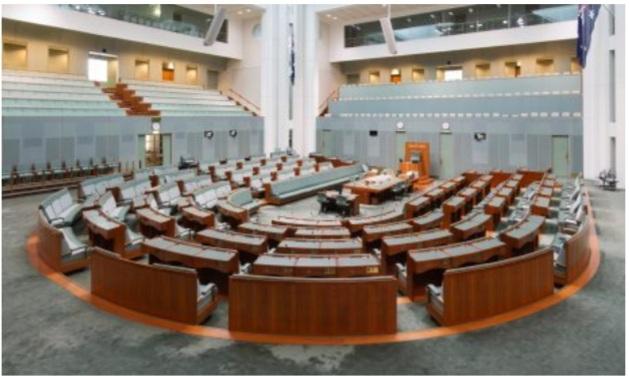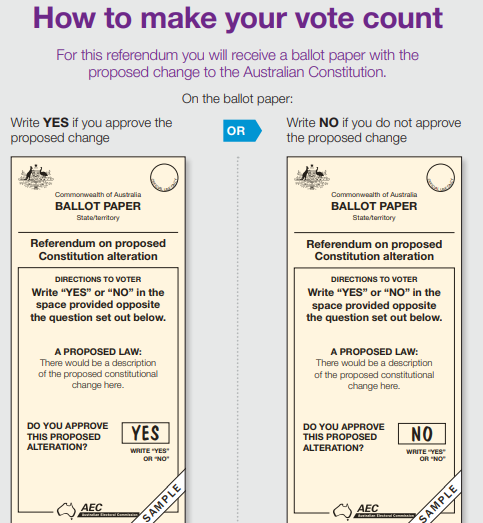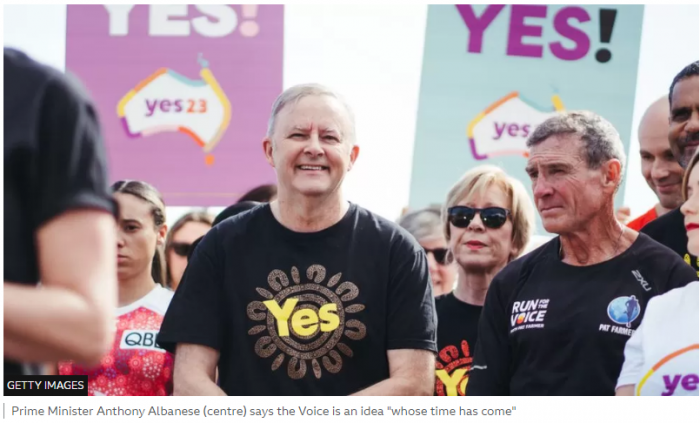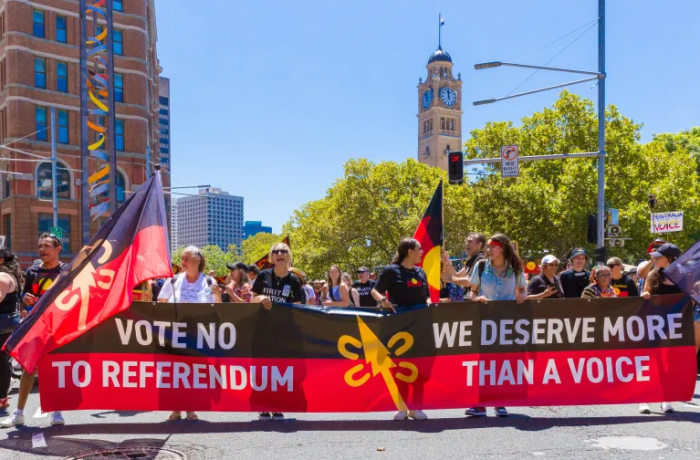Australia Elections
Australia follows a parliamentary democracy system, and elections are held to determine the composition of the federal parliament as well as state and territory parliaments. Heres an overview of the electoral process and major elections in Australia: Federal Elections: Federal elections are held to elect members to the Australian Parliament, which consists of two houses: the House of Representatives and the Senate. Members of the House of Representatives are elected through a preferential voting system in single-member electorates, while Senators are elected through a proportional representation system in multi-member electorates. Federal elections typically take place every three years, although the Prime Minister has the discretion to call an election earlier. State and Territory Elections: Each state and territory in Australia has its own parliamentary system and holds separate elections to determine the composition of their respective legislatures. The electoral processes vary slightly between states and territories, but generally, members are elected to a lower house (e.g., Legislative Assembly) through a preferential voting system, and in some cases, there is an upper house (e.g., Legislative Council) where members are elected using a proportional representation system. State and territory elections usually take place every four years. Local Government Elections: Local government elections are held to elect representatives to local councils, which govern specific regions within states and territories. These elections vary in terms of timing and processes across different areas.
Election gives all citizens, regardless of wealth, a fair shot to be heard and participate in every step of the democratic process

Upcoming & Fresh Elections
Following is the list of upcoming election(s) in Australia that will be held in near future. You may click on the election name to view detail about the election of your choice. You may also post updates and your comments on these elections
Previous Older Elections
Following is the list of previous election(s) in Australia. You may click on the election name to view detail about the election of your choice. You may also post updates and your comments on these elections

Will House of Representatives be losing a seat?
Since the 2022 election, Australia’s population has grown by approximately 1.5 million people. However, despite this increase, the House of Representatives will actually lose a seat in the next election, decreasing from 151 to 150. Western Australia (WA) will gain one seat, while both New South Wales and Victoria will each lose one. Although WA has the highest percentage growth in the country, Victoria has seen twice the population increase in absolute numbers.
Given the population growth, it would seem logical for the House of Representatives to expand. Canada, a comparable political system, has followed this approach—gradually increasing the number of seats in its House of Commons to reflect population changes, including an additional 30 seats in 2015, with ongoing plans for further adjustments.
However, Australia faces a unique challenge. Its Constitution requires that the House of Representatives maintain "as nearly as practical" twice the number of seats as the Senate. This means that any increase in House seats would also require an expansion of the Senate, complicating the process. - Posted on : 20-March-2025

The Question - 2023
The question facing voters is whether to amend the constitution to recognize Australias indigenous peoples by introducing voting rights for Aboriginal and Torres Strait Islander people.
The Australian Parliament has agreed to propose the addition of a new chapter, Chapter IX - Recognition of Aboriginal and Torres Strait Islander peoples, to the Constitution. The chapter will contain a new section 129, which will read as follows:
129 Aboriginal and Torres Strait Islander Voice
Recognizing Aboriginal and Torres Strait Islander Peoples as the First Peoples of Australia:
There must be a body called the Aboriginal and Torres Strait Islander Voice;
Aboriginal and Torres Strait Islander Voice may submit proposals to Parliament and the Commonwealth Executive Government on matters relating to Aboriginal and Torres Strait Islander peoples;
Parliament shall have the power, subject to this Constitution, to make laws in relation to matters relating to the Aboriginal and Torres Strait Islander voice, including its composition, functions, powers and procedures.
If you receive a ballot for a referendum, you must write "yes" if you agree with this proposed change to the Constitution, or you must write "no" if you disagree. - Posted on : 09-September-2023

Lies fuel racism in front of Australias Indigenous voice
“People were let off the leash,” says Thomas Mayo quietly, swiping through screenshots.
Racist memes appear on his phone depicting Aboriginal Australians as “gribbers,” “wife beaters,” and “primitives.”
Then personal threats appear, accusing him of “covering up for evil.”
Mayo is one of the public faces of the Yes campaign in Australias historic parliamentary referendum vote on October 14.
If successful, the vote would change the countrys constitution for the first time in 46 years and create a body for Aboriginal and Torres Strait Islander people to advise the government on policy issues affecting their communities.
Opinion polls had long shown support for the change, but now they suggest the no vote is ahead.
Although some claim the shift reflects public sentiment, yes activists blame it on an ecosystem of disinformation - which they say is led by people in the no camp and "amplified" by suspicious reports on social media.
Independent experts say the “most damaging” and widespread falsehoods online relate to race “like wildfire.”
Amid all the noise is growing concern for the mental health of First Nations communities, which is at the center of an increasingly contentious debate.
And questions are being raised again about whether Australia is ready to deal with the open wounds at the heart of its nation. - Posted on : 07-September-2023

what is the voice?
On referendum day, Australian adults will be asked to vote “yes” or “no” on a single question: “A Bill: Amending the Constitution to recognize the indigenous peoples of Australia by introducing an Aboriginal and Torres Strait Islander vote. “Do you approve this proposed change?”
If the answer is yes, the Constitution would be rewritten to allow the Voice to make “representations” to Parliament and the Executive Government “on matters relating to Aboriginal and Torres Strait Islander peoples”.
Advocates say there is no indigenous veto over government policy and lawmakers are free to ignore Voices representations.
But opponents argue that courts could interpret Voices constitutional powers in unpredictable ways, creating legal uncertainty.
Supporters say the vote will include Indigenous Australians from all eight states and territories, the Torres Strait Islands and remote and regional communities.
The members would be elected by the local indigenous population and would hold office for a specific term.
Parliament would have “the power to make laws relating to the composition, functions, powers and procedures” of voting, the constitution says. - Posted on : 31-August-2023
Australian Parliamentary Committee to Investigate Online Gambling
The Australian House of Representatives Standing Committee on Social Policy and Legal Affairs has launched an inquiry into online gambling and its effects on people with gambling problems.
The Committee requests written submissions by November 11, 2022 from individuals and organizations providing recommendations regarding any or all of the conditions for investigation.
The committee will examine a number of issues, such as: the effectiveness of existing consumer protections in reducing problem online gambling; the effectiveness of existing consultations; and support services to address online gambling problems with access to quality and safe online gambling education programs.
The list also includes compliance with existing gambling regulations regarding emerging technologies, payment options and products, and effective protection against illegal online gambling services. This includes casino-style gambling such as online blackjack and slot machines.
How to better target programs to address problem online gambling to reduce potential exploitation of at-risk populations, and to protect individuals, families and communities, among other issues. , as well as the appropriateness of the definition of gambling services in the Interactive Gambling Act 2001 will also be reviewed.
Murphy MP, chair of the MAP committee, commented: “The investigation will shed new light on online gambling and whether existing laws, regulations, consumer protection and education and support programs are sufficient to reduce the harms to gamblers.
"The Committee is concerned about the increasing penetration of online gambling platforms into Australian lives, the exposure of children and young people to gambling advertising and how this may contribute to future increases in problem gambling. " - Posted on : 17-September-2022
Elections 2021
Local Government elections for the City of South Perth are held after every two years in the Month of October (3rd Saturday). So this year elections will be held on Saturday October 16, 2021.
For vote in 2021 elections and/or nominate for council all resident should register on the city of south Perth by 27 Aug 2021. Key dates for election 2021 like nomination will be open from Thursday 2nd September 2021 to 4pm on 9th September 2021. While polling day is 16th of October 2021 and polling will be closed at 6pm. - Posted on : 13-August-2021
Council elections
The most recent periodic council elections were held in November 2018. The next council elections will take place during November 2022.
In South Australia, council elections are held every four years for all 68 councils except the Municipal Council of Roxby Downs, which operates under its own administration.
Council elections allow voters the opportunity to choose who they wish to represent them on council. - Posted on : 08-January-2019
Labors election win
Not even the most supreme optimists in Labor dreamed of this. A thumping victory, a "bloodbath" as Labors health minister, Jill Hennessy, put it. Labor luminaries looked not just pleased, but stunned.
A swing to Labor of around 6%, around 60 seats in an 88-seat parliament, the Coalition reduced to a rump of 20, with several still in doubt. Although the counting of prepoll votes might bring back the scale of the win a little, Labor’s early worries about being forced into minority government proved laughable.
Most stunning were the wins in Melbourne’s comfortable leafy eastern suburbs, not seriously considered to be within Labor’s grasp, and not held by the party since the glory days of Steve Bracks’ landslide in 2002. Seats like Ringwood, Forest Hill, Burwood. - Posted on : 25-November-2018
Frequently Asked Questions


